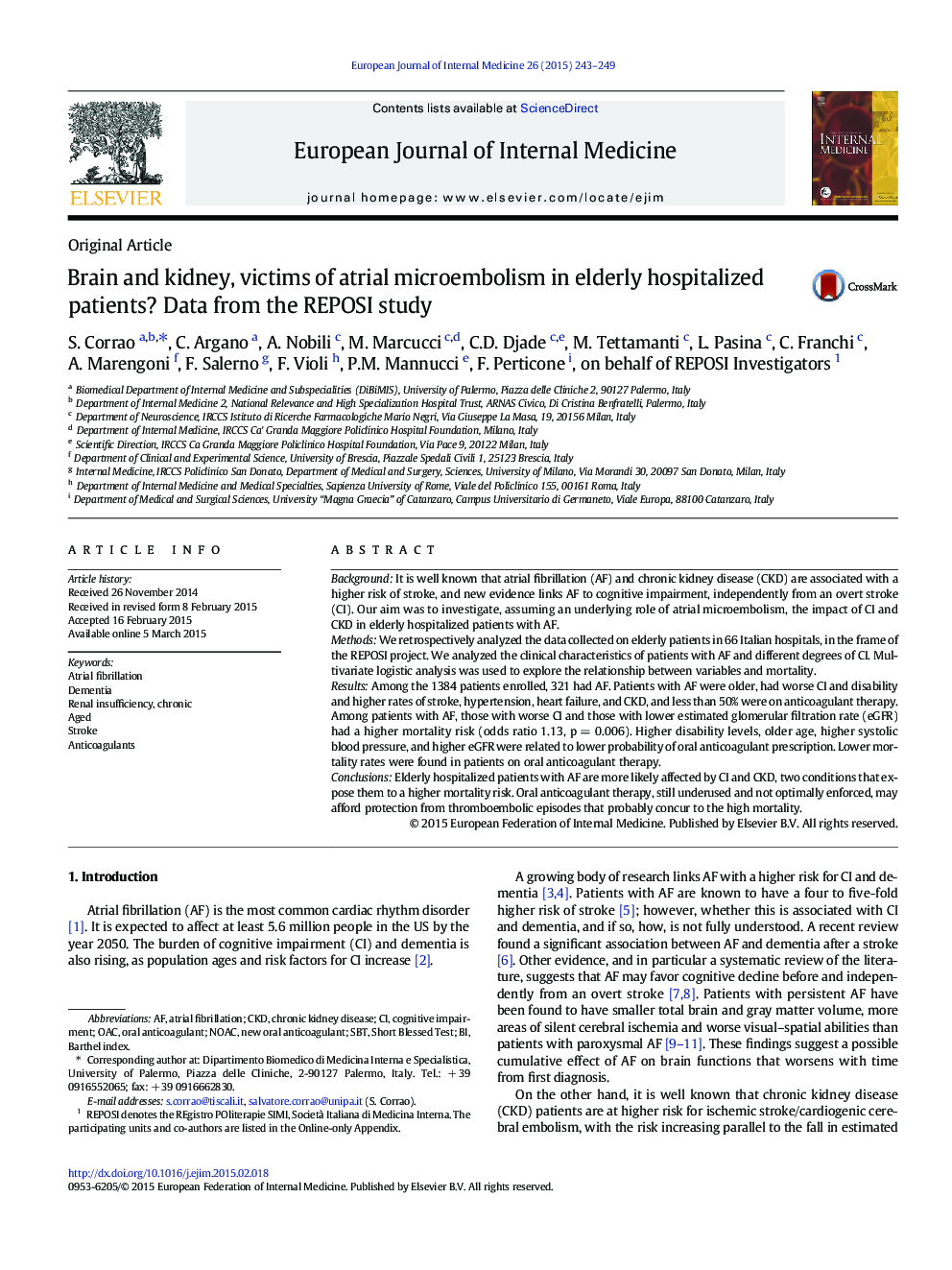| Article ID | Journal | Published Year | Pages | File Type |
|---|---|---|---|---|
| 3466305 | European Journal of Internal Medicine | 2015 | 7 Pages |
•We analyzed the data of the REPOSI registry on elderly hospitalized patients.•Patients with atrial fibrillation had worse cognitive impairment and disability.•Patients with atrial fibrillation had higher rates of chronic kidney disease.•Older age and worse disability were related to anticoagulant therapy underuse.•Worse cognitive impairment and kidney function were related to higher mortality.
BackgroundIt is well known that atrial fibrillation (AF) and chronic kidney disease (CKD) are associated with a higher risk of stroke, and new evidence links AF to cognitive impairment, independently from an overt stroke (CI). Our aim was to investigate, assuming an underlying role of atrial microembolism, the impact of CI and CKD in elderly hospitalized patients with AF.MethodsWe retrospectively analyzed the data collected on elderly patients in 66 Italian hospitals, in the frame of the REPOSI project. We analyzed the clinical characteristics of patients with AF and different degrees of CI. Multivariate logistic analysis was used to explore the relationship between variables and mortality.ResultsAmong the 1384 patients enrolled, 321 had AF. Patients with AF were older, had worse CI and disability and higher rates of stroke, hypertension, heart failure, and CKD, and less than 50% were on anticoagulant therapy. Among patients with AF, those with worse CI and those with lower estimated glomerular filtration rate (eGFR) had a higher mortality risk (odds ratio 1.13, p = 0.006). Higher disability levels, older age, higher systolic blood pressure, and higher eGFR were related to lower probability of oral anticoagulant prescription. Lower mortality rates were found in patients on oral anticoagulant therapy.ConclusionsElderly hospitalized patients with AF are more likely affected by CI and CKD, two conditions that expose them to a higher mortality risk. Oral anticoagulant therapy, still underused and not optimally enforced, may afford protection from thromboembolic episodes that probably concur to the high mortality.
